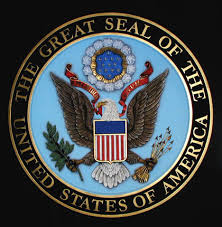 First I want to apologize for not writing for several days. I just had so many irons in the fire I was not able to get to the computer while my brain was functioning well enough to write proper sentences.
First I want to apologize for not writing for several days. I just had so many irons in the fire I was not able to get to the computer while my brain was functioning well enough to write proper sentences.
Today at the hospital we had a Continuing Education event which was a case study about a shooting at a hospital in Maryland in 2006. The case study examined what happened from all perspectives and those of us in the room were able to see what we could and should do if this frightening event were to happen at our hospital. The case we examined involved an inmate who was able to get the correctional officer’s gun from him, murder the officer and then flee the hospital. During his escape attempt he took hostages.
These are the entities that played a role in the event:
- The Hospital
- The Prison
- The 911 Command Center
- City, County and State Police
Everyone in the room was saddened as we learned how the events unfolded that fateful day back in 2006. All of us very much want to be prepared as well as put in place precautionary procedures so an inmate could not get a weapon from the officer who is guarding him,
Coming away from watching the case study I could relate to the family of the officer who was killed, the people who were taken hostage and their loved ones, and the hospital staff who worried for their safety and the safety of the patients entrusted to their care.
My own take away from this event is that as a chaplain I have no business trying to secure an inmate. This is because I am not a highly muscular person and would more likely get injured than prevent the inmate from moving. If this event did happen though I could have several important roles.
If I was a witness to the event getting an accurate and thorough description of what the inmate was wearing and what direction he or she was headed would great aid in the search. Using the appropriate code system I could and should summon help. For the staff and patients who are traumatized by the event I could offer them comfort and support and a forum to discuss their feelings. These conversations would have to take place in cooperation with law enforcement so my conversation would not play any role in creating inaccuracy in their statements. So I would wait for conversations until I had permission. I could offer a hug and emotional support to them while they were waiting to be interviewed as long as I did not play the role of unofficial investigator.
With the rise in recent years of shootings in schools, malls, hospitals and other public places; we all need to be vigilant to be aware of surroundings and notice and report with accuracy anything or anyone who seems out of place. A proactive approach could very well interfere with those who are planning violence. Wouldn’t that be a blessing, to help keep tragedy from happening? I know I am committed to the cause!









